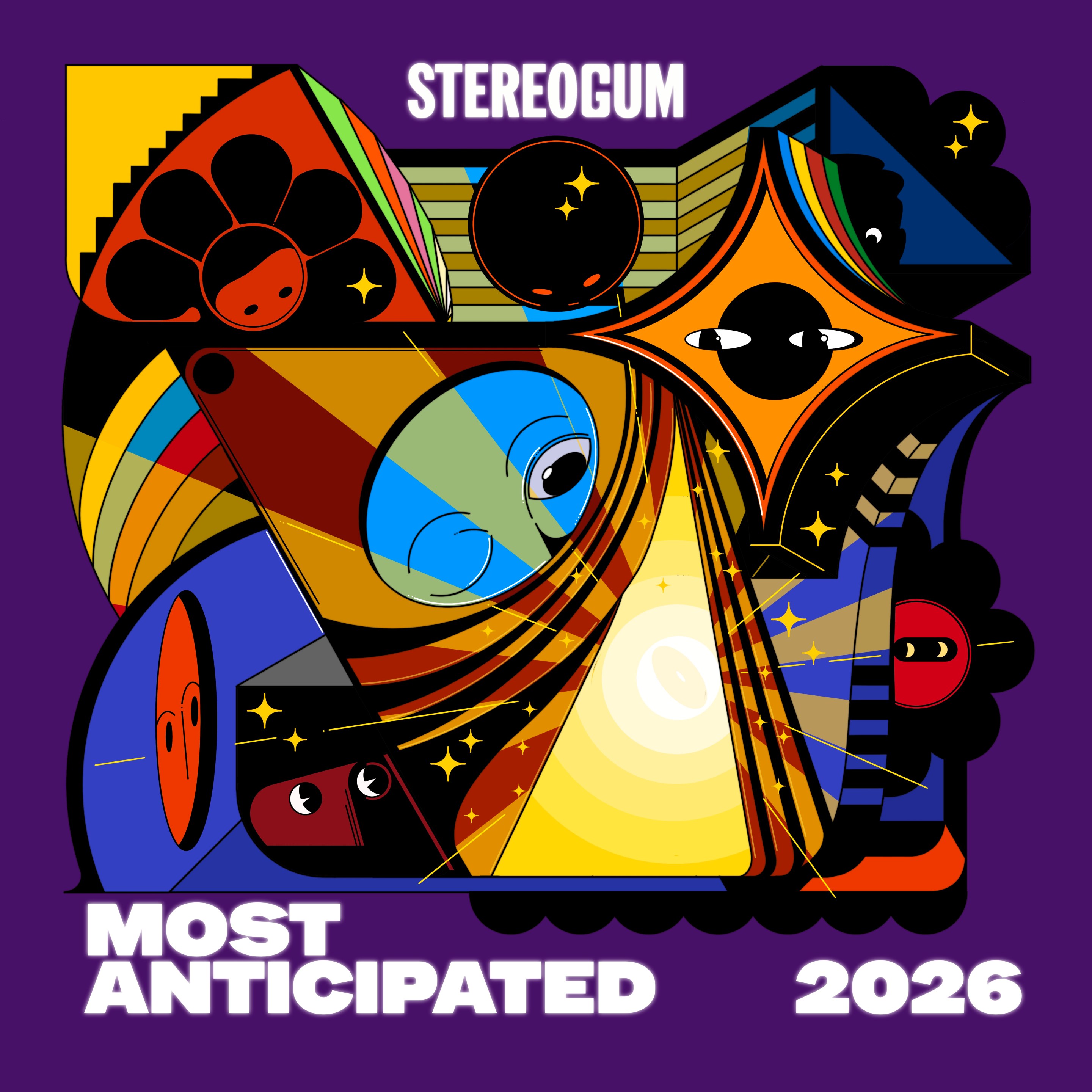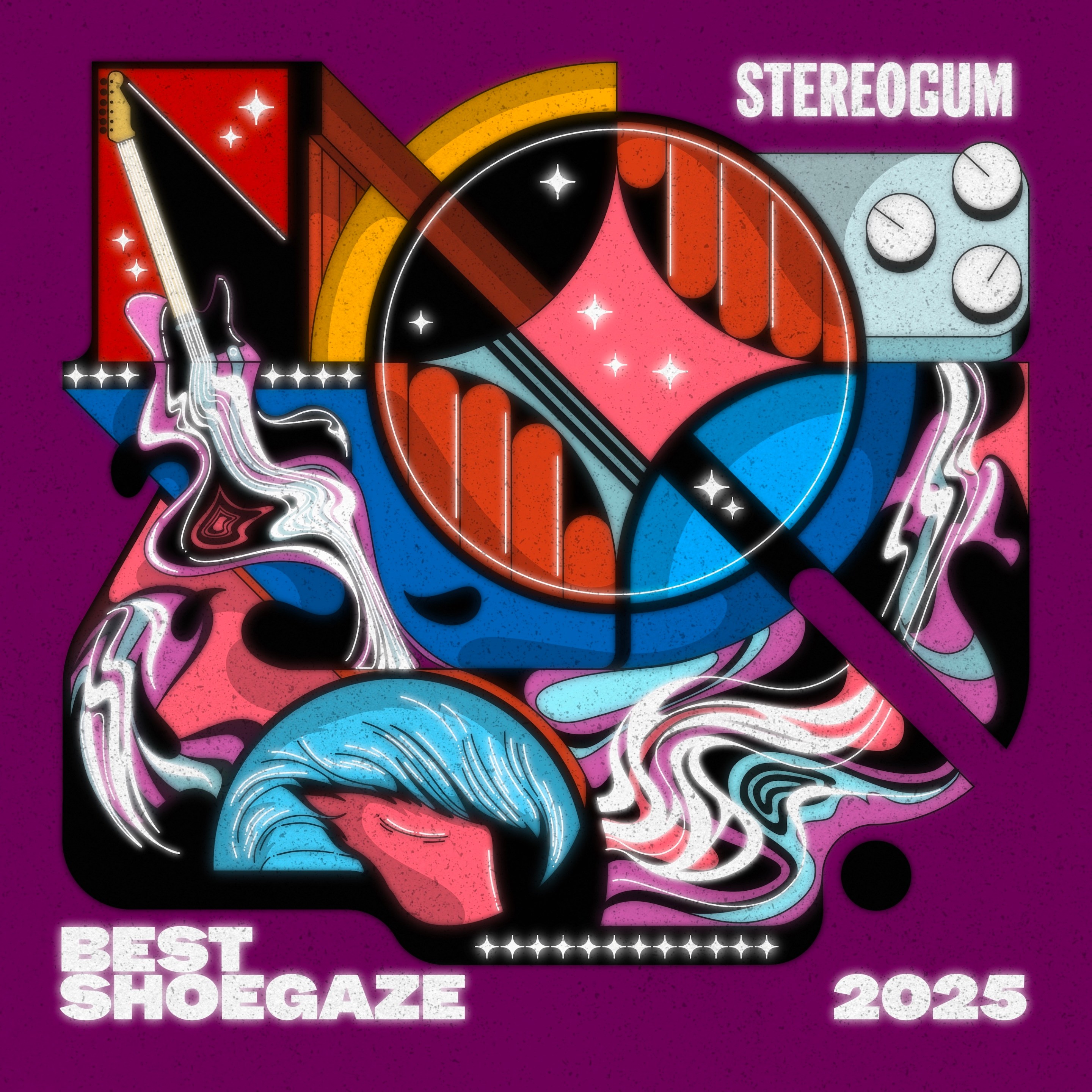Every week the Stereogum staff chooses the five best new songs of the week (the eligibility period begins and ends Thursdays right before midnight). This week's countdown is below, and you can listen to a playlist of all our 5 Best Songs on Spotify.
Happy Nick Cave week! The surprise arrival of Carnage was the big event of the week, but there were a lot of other great songs that came out, too. The five best of them are below.
Real Estate - "Half A Human"
It can be easy to take Real Estate for granted. Although they've continued to expand their sound over the course of the past decade and change, they've been so consistent for so long that you basically know what you're going to get when you press play on a Real Estate song. Real Estate do what they do. But when they do it as well as they do, that's not necessarily a complaint. Real Estate's new song "Half A Human" is another subtle evolution, with its extended jammy outro leading into a lightly psychedelic climax. But it also sort of functions as the platonic ideal of a Real Estate song -- pleasantly hazy indie rock that feels like the chill of autumn creeping into a warm summer's day, wistful in a comforting sort of way. And if you've ever had any affection for this band, it'll remind you exactly why you fell in love with their suburban yearning all those years ago. —Peter
Damon Locks & Black Monument Ensemble - "Now (Forever Momentary Space)"
When you hear someone is a “collage” artist, it usually suggests fragmentation and chaos — something like an avant-garde electronic artist clipping and rearranging incongruous textures. That’s not really how Damon Locks works his collages. Joined by his revolving-door Black Monument Ensemble, Locks’ new music did emerge from tumultuous times, recorded last year and reflecting on the strains of the pandemic and the mingled grief and defiance of the latest, most widespread wave of protests against police brutality. Sometimes the music on NOW sounds like that — conversations about injustice, noisy shifts and hisses echoing a violent world. But more often than not there is a fluidity to how Locks collides sounds and images, the Black Monument Ensemble a single organism possessing many voices. “Now (Forever Momentary Space)” has tumbling percussion, cicada murmurs, old-school phone beep interjections, jazzy solos, a salve of a vocal melody. There’s a lot going on, but it all comes together into a sort of prayer or ritual, horns sighing and the Black Monument Ensemble becoming one unified sound. Musically, it could sound transporting, like an actual meditation, but in the end all those alluring sounds serve as a reminder to look at the moment you’re living through and engage with what is right in front of you, right this second. —Ryan
Flock Of Dimes - "Price Of Blue"
Before Jenn Wasner set about imploding the barriers between different versions of Wye Oak, and then between Wye Oak and her other projects, Flock Of Dimes was more or less regarded as a slightly poppier, slightly synthier outlet to the side of her main gig. That’s not what Flock Of Dimes is anymore, and that’s not what “Price Of Blue” is. Between the restrained LIke So Much Desire EP last year and the bubbly, infectious “Two,” the lead single from her forthcoming album Head Of Roses, it’s become clear that Flock Of Dimes has room for whatever songs Wasner wants to write and whatever stories she wants to tell. So that brings us to “Price Of Blue,” a breakup reckoning that finds Wasner tapping into the autumnal, reflective rock sound that’s always been such a mesmerizing side of her songwriting. So much of Wasner’s best work exists in murky places. Something about her melodic sensibility, the long yearning ways she stretches out notes, lends itself to the more ineffable corners of our emotions even when she’s trying to put it into words. That’s where “Price Of Blue” lies. It’s about the collapse of relationships, but it’s also about the stuff that’s particularly hard to perceive or navigate: the way you can be close to someone but yet so removed, the way a person remains a part of your identity even after they aren’t in your life anymore. “Price Of Blue” has these miniature eruptions, scorching guitar interjections that could sound like Wasner trying to burn all that away. But in the end it moves differently, a patient and evocative song that acknowledges the weight we carry with us from the past while still resolving to keep walking on. —Ryan
Kero Kero Bonito - "The Princess And The Clock"
I've been on a JRPG kick over the past few weeks (Ni No Kuni II, mostly) and Kero Kero Bonito's "The Princess And The Clock" feels ripped out of that same sort of high-fantasy video game world. The trio engages in some myth-making of their own, telling the tale of a young princess trapped in a tower and counting down the hours until she can escape. She's idolized by those that put her there but she feels isolated and alone. The song itself is bright and peppy but there's an undercurrent of sadness, a resignation that it's easier to dream of escape than to actually take action. "Shadowed by a clock face/ The hands arrested at the time she came," Sarah Perry sings. "And though she showed the passing of the days/ Eternally a child she would remain." It's a good synthesis of the band's poppy beginnings and their more recent rock-oriented bent. When the chorus takes off, it sounds like a bunch of flower petals sailing through the air, delicate but fleeting. —James
Nick Cave & Warren Ellis - "White Elephant"
At the dark heart of Carnage lies Nick Cave's very own "Guernica" for the culture wars. His intentions here are not as clear as the positions he expresses in his Red Hand Files newsletter, where he has condemned "any system of thought, including ‘woke’ culture, that finds its energy in self-righteous belief and the suppression of contrary systems of thought." "White Elephant" is instead a Rorschach blot, its procession of vivid loaded phrases seemingly intended to provoke a range of responses rather than communicate a particular idea. Think of it as a full-length motion picture boiled down to a six-minute song. "White Elephant" centers on a "white hunter" clutching a gun on his porch, threatening to "shoot you for free if you come around here." There are allusions to protesters tearing down statues and kneeling on their necks, the creation of the Greek goddess Venus, an "elephant gun full of tears" and an "ice sculpture melting in the sun" and a "great grey cloud of wrath." As the poetic language piles up, a panorama emerges, a vision of a decaying society descending into biblical-grade chaos. It feels apocalyptic even before the ominous groove explodes into its splendorous gospel finale. That finale, though! The clattering drum beat and subterranean bass bombs, the piercing high-pitched stabs of melody, the rising waves of droning noise, Cave's harshly bellowed narration: It's all setting the stage for "White Elephant" to ascend to kingdom come. As the focus shifts from the wasteland below to the glory above, a choir comes surging in, proclaiming, "A time is coming, a time is nigh/ For the kingdom in the sky!" Cave's depiction of divine intervention is beautiful and terrible in a manner that reminds me of "Seven Swans" by Cave's fellow Flannery O'Connor reader Sufjan Stevens — or maybe Spiritualized if Jason Pierce dropped the drug metaphors and mainlined the book of Revelation instead. There's a giddy euphoria to it, but also a chilling sense that judgment is about to be doled out. On whom? "White Elephant" leaves that up to the listener. Cave doesn't even clarify whether we are to understand this deus ex machina as a welcome cleansing or merely the fantasy of a narrator caught up in religious and political mania, a self-styled cowboy who is losing his grip on the world as he knew it. The song is less a polemic than a catalyst for thinking, feeling, reckoning. It'll shoot you in the fucking face and evaporate before your eyes. —Chris






